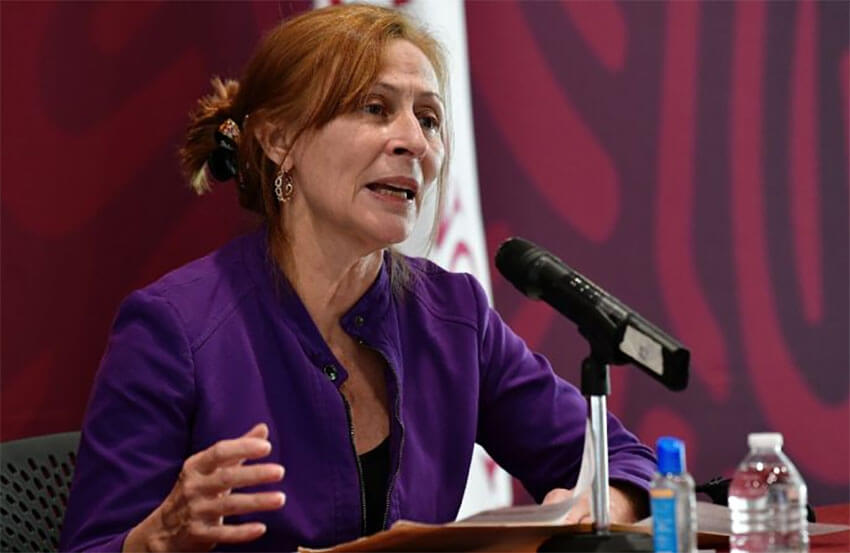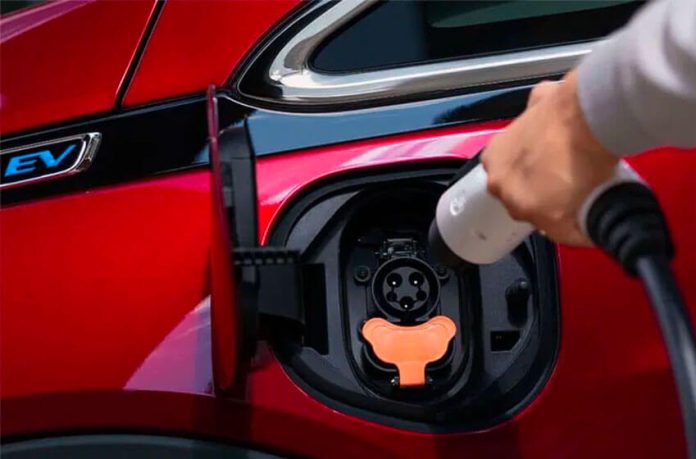A United States bill that seeks to spur domestic demand for electric vehicles (EVs) poses a threat to the Mexican automotive industry, the Mexican Employers Federation (Coparmex) has warned, while the federal government has indicated it will retaliate commercially if the proposed legislation passes the U.S. Congress in its current form.
The Build Back Better (BBB) Act, already approved by the United States House of Representatives and awaiting consideration by the Senate, would increase credits available to U.S. consumers buying U.S.-made EVs to up to US $12,500 from $7,500. It would also eliminate caps on the number of credits individual automakers can offer.
Bloomberg reported that if the bill gets through the Senate, BBB will be “one of the most aggressive EV incentives in the world and definitely the greatest largesse for plug-in buyers in any major auto-producing nation.”
Coparmex and the federal government say the proposed legislation violates the provisions of the United States-Mexico-Canada Agreement (USMCA), the free trade pact that took effect last year.
“At the Mexican Employers Federation, we agree with what the Economy Ministry [SE] of the Mexican government has said with regard to the Build Back Better Act initiative that proposes granting additional tax credits for electric vehicles – it violates the agreements reached in the USMCA and at the World Trade Organization [WTO],” Coparmex said in a statement Thursday.
“In the specific case of the USMCA, this proposal violates regional content provisions, whose objective is to achieve greater and improved integration in supply chains in North America,” it said, adding that the BBB would discriminate against the automotive industries in both Mexico and Canada.
“… If the Build Back Better Act is approved, only electric vehicles built in the United States will be eligible to access the tax credit amounts, both the existing ones and those created by this initiative. This situation places at risk the Mexican automotive industry, which contributes close to 4% of gross domestic product, represents more than 25% of exports and generates more than one million jobs,” Coparmex said.
“As the SE has said, it is necessary that this proposal be adjusted so that it doesn’t violate the USMCA and WTO agreements, and especially so it doesn’t result in a discriminatory act for Mexican exports of electric vehicles, which would be at a serious disadvantage compared to vehicles produced in the United States,” it said.
Coparmex also said it would support any legal action the federal government takes against the BBB.
“The trade agreements … that have given rise to a healthy and productive bilateral relationship through the years must be respected,” it said.
“From Coparmex we call on the relevant authorities to favor dialogue and exhaust all the resources available to reach a deal that respects the criteria of cooperation, good faith, understanding and mutual respect on which the relationship between Mexico and the United States, strategic allies, is based.”

Economy Minister Tatiana Clouthier warned Thursday that the government would “retaliate commercially” to defend the automotive industry if the BBB passes the U.S. Senate in its current form.
The USMCA signatories can’t opt in or out of the agreement at will, she said. She didn’t say what actions Mexico might take against the United States, although one option would be to impose tariffs on certain U.S. imports.
Clouthier stressed that provisions in BBB are “contrary to regional value content rules agreed to in the USMCA.”
Such rules stipulate that a vehicle made in Mexico with at least 50% regional content must also be considered a locally produced vehicle in the United States and Canada.
In a letter, the economy minister urged U.S. lawmakers to modify the BBB so that the proposed credits are available to all EV’s made in North America, not just those manufactured in the United States.
If the bill is approved in its current form, Mexico could challenge it via mechanisms set out by the USMCA or take the case to the WTO.
With reports from El País
